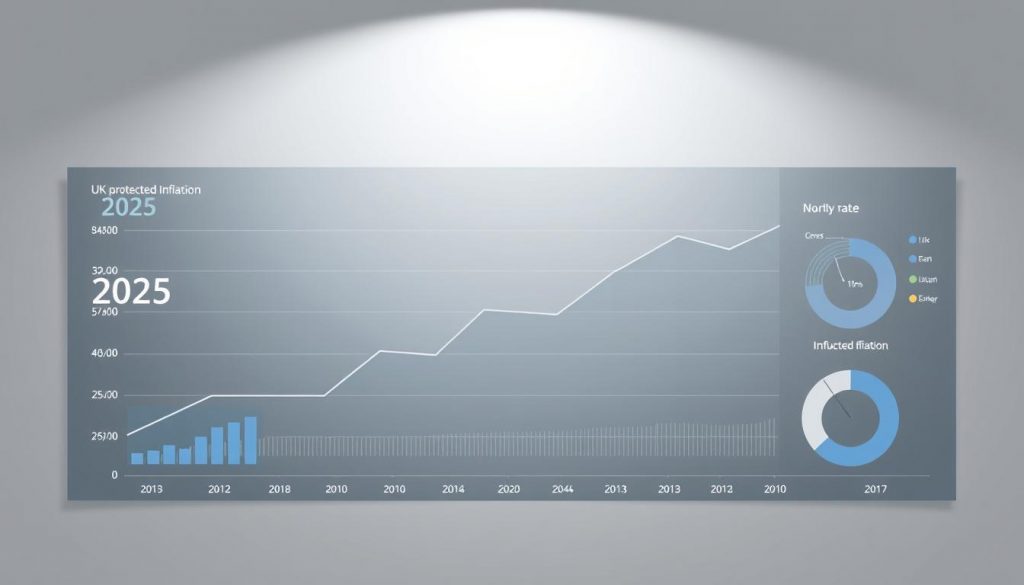Is the 2008 UK Financial Crisis Really Over? Find Out Now. The 2008 financial crisis hit the UK hard, causing many job losses and financial stress for families. It’s been over a decade, but its effects are felt today. The crisis started in the US housing market, leading to a deep recession in the UK.
Despite signs of recovery, doubts about the UK’s economic stability remain. The 2008 financial crash’s impact is seen in many sectors. Knowing why and how the crisis happened is key to understanding if it’s really over.
Key Takeaways
- The 2008 financial crisis had a significant impact on the UK economy.
- Excessive speculation and predatory lending triggered the global economic downturn.
- The UK’s economy has shown signs of recovery.
- The crisis led to widespread job losses and strain on households.
- Understanding the crisis’s causes and effects is key to assessing its current status.
The 2008 Global Financial Crisis: Origins and UK Impact
The 2008 global financial crisis hit the UK hard, causing economic troubles for many. It started with subprime mortgage defaults in the US. This problem spread worldwide, affecting the UK’s economy deeply.
What Triggered the Global Financial Meltdown
Subprime mortgages in the US were a big problem. These risky loans were turned into securities and sold globally. When the housing market fell, these securities lost value, causing huge losses for banks.
In September 2008, Lehman Brothers went bankrupt. This event shocked the world’s financial systems. It led to a credit freeze and a big drop in economic activity.
How the Financial Crisis Devastated Ordinary Britons
Ordinary Britons suffered a lot. Unemployment jumped from 5% in 2007 to 8% in 2011. Many families found it hard to afford basic needs.
House prices fell, leaving some in negative equity. This added to the financial burden on families. It showed how vulnerable the UK’s economy is to global financial issues.
Initial Government Responses and Bailouts
The UK government took big steps to tackle the crisis. They used bailouts and stimulus packages to help the economy. The Bank of England also cut interest rates to boost growth.
The government helped major banks like RBS and Lloyds to avoid collapse. These actions were seen as necessary to prevent a total financial disaster.
Is the UK 2008 Financial Crisis Really Over? The Evidence in 2025
By 2025, the UK economy shows signs of recovery. It’s important to check if the 2008 financial crisis is truly over. The UK’s economy has changed a lot, with Brexit and government policies playing big roles.
UK Economy in Mid-2025: Growth, Debt, and Fiscal Pressures
In 2025, the UK economy faces a complex situation. Growth is happening, but high debt and fiscal pressures remain. The UK’s debt-to-GDP ratio is a big worry.
The government must balance economic growth with managing debt. This is a big challenge for them.
| Economic Indicator | 2023 | 2024 | 2025 |
|---|---|---|---|
| GDP Growth Rate | 1.2% | 1.5% | 1.8% |
| Debt-to-GDP Ratio | 95% | 94% | 93% |
| Unemployment Rate | 4.2% | 4.0% | 3.8% |
Banking Sector Stability: Lessons Learned and Reforms
The UK banking sector has changed a lot after 2008. Rules have been tightened to make banks more stable. This includes stricter capital requirements and stress tests.
Bank stability is key for the UK’s economy. Reforms aim to make banks more resilient and better at managing risks.
Post-Brexit Economic Landscape and Recovery Challenges
After Brexit, the UK’s economy faces both chances and hurdles. Brexit has opened up new trade deals but also brought uncertainty. This has affected some parts of the economy.
The UK must adapt to new trade rules. The government’s success in dealing with these changes will shape the UK’s economic future.
The UK is focusing on keeping economic growth and staying fiscally stable. The Brexit economic impact will remain a key concern for policymakers.
The Cost-of-Living Crisis: A Continuing Struggle
The cost-of-living crisis in the UK is ongoing in 2025. It affects many parts of household finances.
Rising Inflation and Energy Prices in 2025
Inflation in the UK is rising fast, mainly because of higher energy costs. As of mid-2025, inflation is at 3.6%, which is higher than usual.
Key factors contributing to inflation include:
- Increased global demand for energy
- Supply chain disruptions
- Geopolitical tensions affecting oil prices
Inflation is affecting many areas. People are paying more for food, transport, and housing.

Housing Market Challenges: Affordability and Availability
The UK’s housing market is facing big challenges. Housing prices are going up, but wages are not, which makes it hard for many to buy homes.
The main issues in the housing market include:
- Lack of affordable housing stock
- Increasing rental costs
- Stricter mortgage lending criteria
This has made the market very competitive. Many are finding it hard to buy a home.
How Ordinary People in the UK Are Coping in Mid-2025
People in the UK are finding ways to deal with the crisis. They are:
- Budgeting and cutting back on non-essential spending
- Looking for extra income, like part-time jobs or freelance work
- Using government help when it’s available
But many households are finding it tough and need ongoing support and effective policies.
Government Performance and Policy Responses
It’s important to look at how the UK government has handled the financial crisis. Their response has included both spending and monetary actions.
Assessing UK Government Economic Policies
Many economic policies have been put in place by the UK government. These include cutting spending and boosting the economy with stimulus packages. Some say these steps have helped, while others think they’ve made things worse.
Key policy initiatives include the Bank of England’s quantitative easing and the government’s stimulus packages. Yet, economists and policymakers disagree on how well these have worked.
Bank of England’s Monetary Policy Approach
The Bank of England has been key in tackling the crisis. They’ve used monetary tools, like interest rates, which have recently been reduced to 4% to help the economy and encourage growth.
The Bank of England has also used quantitative easing. This move has kept borrowing costs down, aiding in the economic recovery.
Policy Measures and Expert Recommendations
Experts suggest several policies for a strong recovery. They recommend investing in infrastructure and reforming the financial sector to boost growth and stability, tackling the crisis’s root causes.
Some experts also push for more help for those hit hard by the crisis. This could mean tax cuts or more government support for key sectors.
Looking closely at the government’s policies and expert advice is vital, as it helps figure out the best way to recover. By reviewing these efforts, policymakers can find ways to improve and create new strategies for growth and stability.
Conclusion: Financial Resilience or Looming Crisis?
The UK’s financial scene has changed a lot after the 2008 crisis. But, the big question is: is the UK 2008 financial crisis really over? The answer depends on understanding the current recession risk and financial stability in the UK.
By mid-2025, the UK economy is on the mend, but it’s not without its problems. High debt, inflation, and global economic worries raise the risk of a recession. The financial stability update for the UK shows a bit of hope, thanks to banking reforms after 2008.
Yet, the fear of another financial crisis is real, and keeping a close eye on things and wise economic management are key to avoiding these risks. The way forward needs a careful balance, tackling the cost-of-living crisis and keeping the financial system stable.
To wrap it up, while there has been progress, the UK’s financial strength is being put to the test. The danger of another crisis is real. So, it’s vital to stay alert and active in managing the economy.
For more articles on Finance, please follow the link


